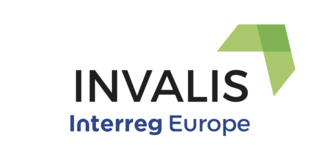On the 14th and 15th of December 2020, the Physical Oceanography Research Group at the University of Malta and Italian National Institute of Oceanography and Experimental Geophysics (OGS), organized an on-line workshop with the title “Designing the future system of observing systems to assess and address environmental threats to the Mediterranean marine ecosystem – State of the art, needs and future direction”. The event was the First SHAREMED Capitalisation Workshop. The INTERREG MED Strategic Project SHAREMED has the specific goal to define and test the implementation of a The event was the First SHAREMED Capitalisation Workshop. The INTERREG MED Strategic Project SHAREMED has the specific goal to define and test the implementation of a transnational and multi-level system of observing systems, able to assess and address environmental threats in the Mediterranean Sea and along its coasts. The project is intended to support regional, sub-regional and local authorities, and the research community to jointly assess and address hazards related to the increasing presence of pollutants and coexisting environmental threats in the Mediterranean Sea. The workshop attracted more than 200 participants, coming from several EU- and even non EU-states and representing various projects related to environmental threats in the Mediterranean Sea.
NECCA was invited to participate in the event as the lead partner in the INVALIS project, since invasive alien species are recognized as one of the main threats to the Mediterranean ecosystems. Our agency accepted the invitation as an opportunity to communicate and disseminate the objectives of the project, as well as contributing to the success of the SHAREMED project. In the first day of the workshop (14.12.2020), Orfeas Roussos (INVALIS Project Manager at NECCA) presented the INVALIS project, especially focusing on its contribution to addressing the main bottlenecks in IAS management and the information and data it can provide. Following the presentations, there was a general discussion about what the various projects, including INVALIS, can provide to observation of environmental threats. The need to maintain cooperation even after the end of the projects was stressed during the discussion.
The participation in the SHAREMED Workshop contributed in promoting the visibility of the INVALIS project and its objectives among important European actors involved in environmental research and policy making and also in disseminating the lessons learned by the project to a wider international audience. It also laid the foundation for integrating the information gained from the INVALIS project in a wider network on the environmental threats in the Mediterranean. Additionally, the participation paved the way for cooperation between the INVALIS partners and other research centers or authorities working in similar projects, e.g. through the exchange of data and information.

